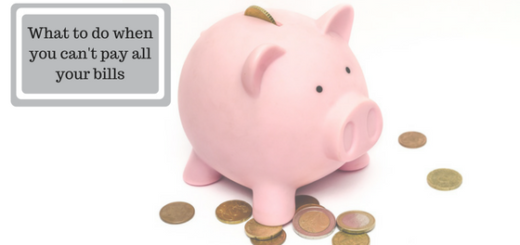What to Do if You’re Having Trouble Managing Your Debts
 Carrying debt can be a precarious situation. You may feel like you have everything under control, and for awhile you might. You’re paying what you can and trying to keep it from growing out of control. But, any life event or change in income can send everything into chaos. Suddenly, your debt is growing and taking over your financial profile. It may feel like there is no way to control the situation anymore. And, you may feel desperate to try anything you can to make it stop. However, not every method to stop debt is a good one. If you’re having a problem managing your debt, here are some tips to help you handle the situation.
Carrying debt can be a precarious situation. You may feel like you have everything under control, and for awhile you might. You’re paying what you can and trying to keep it from growing out of control. But, any life event or change in income can send everything into chaos. Suddenly, your debt is growing and taking over your financial profile. It may feel like there is no way to control the situation anymore. And, you may feel desperate to try anything you can to make it stop. However, not every method to stop debt is a good one. If you’re having a problem managing your debt, here are some tips to help you handle the situation.
Don’t hide
It may be tempting to just ignore the problem in hopes that it will go away, but that typically only works for bees. This strategy absolutely does not work for debts. While you’re blissfully ignoring the situation, your interest is accruing, and your creditors are starting to take notice. Now is not the time to hide. It’s the time to remain calm and take action.
Assess your situation
Try to pinpoint exactly what the problem is and how long it has been going on. For example, is your credit card bill suddenly much higher than it has been the past few months, or have you always struggled to make all your payments?
Then, determine exactly what your problem areas are, and what is happening in your bank account. Start by making a record of your income and expenses to get a clear picture of what’s going on. Then, make a record of everything you owe and to whom. You’ll feel more organized and less scattered.
Make cuts
Right now your top priority should be handling your debts. This means you need to allocate any extra money you have towards paying down balances and getting a handle of your situation. If your money is tight, you’ll need to find ways to eliminate extra expenses. Start with easy options like cutting cable, reducing streaming subscriptions or taking steps to lower your utility usage.
If the money you’re saving doesn’t put any dent into your debt, you’ll need to make some tougher choices. This could mean selling some of your items, refinancing your mortgage, negotiating medical bills, or deferring student loans. Not all these solutions will work for everyone. Find what’s right for you and your situation. And, keep in mind your goal is to stop your debt from growing out of control.
Prioritize bills, debts and additional spending
Once you’ve gotten organized and trimmed your budget, it’s time to start getting your debts under control. Because not all debts impact your financial health in the same way, you’ll want to prioritize what you pay back and when. The list of what you owe should make this simpler. Your top priorities are paying the bills that allow you to meet your most basic needs (i.e.: food and shelter). Next, start tackling your secured debts (if you have them) and revolving debts. If you have revolving debts, contact your lenders and creditors and let them know about your situation. If possible, contact them before the bill is due to see if they can offer a solution such as an extended due date, reduced payment amount or waived late fee.
Other options for managing out of control debts
If you have accounts that are already charged off, or truly cannot make a dent in these debts, you may want to consider another option such as one of these. You could benefit from taking out a personal loan or debt consolidation loan. In that case, you can pay down delinquent debts, look forward to a fixed pay off date and have fixed payments that fit into your budget. To learn more about your options, talk to one of our loan servicing specialists today at (877) 373-2330.


